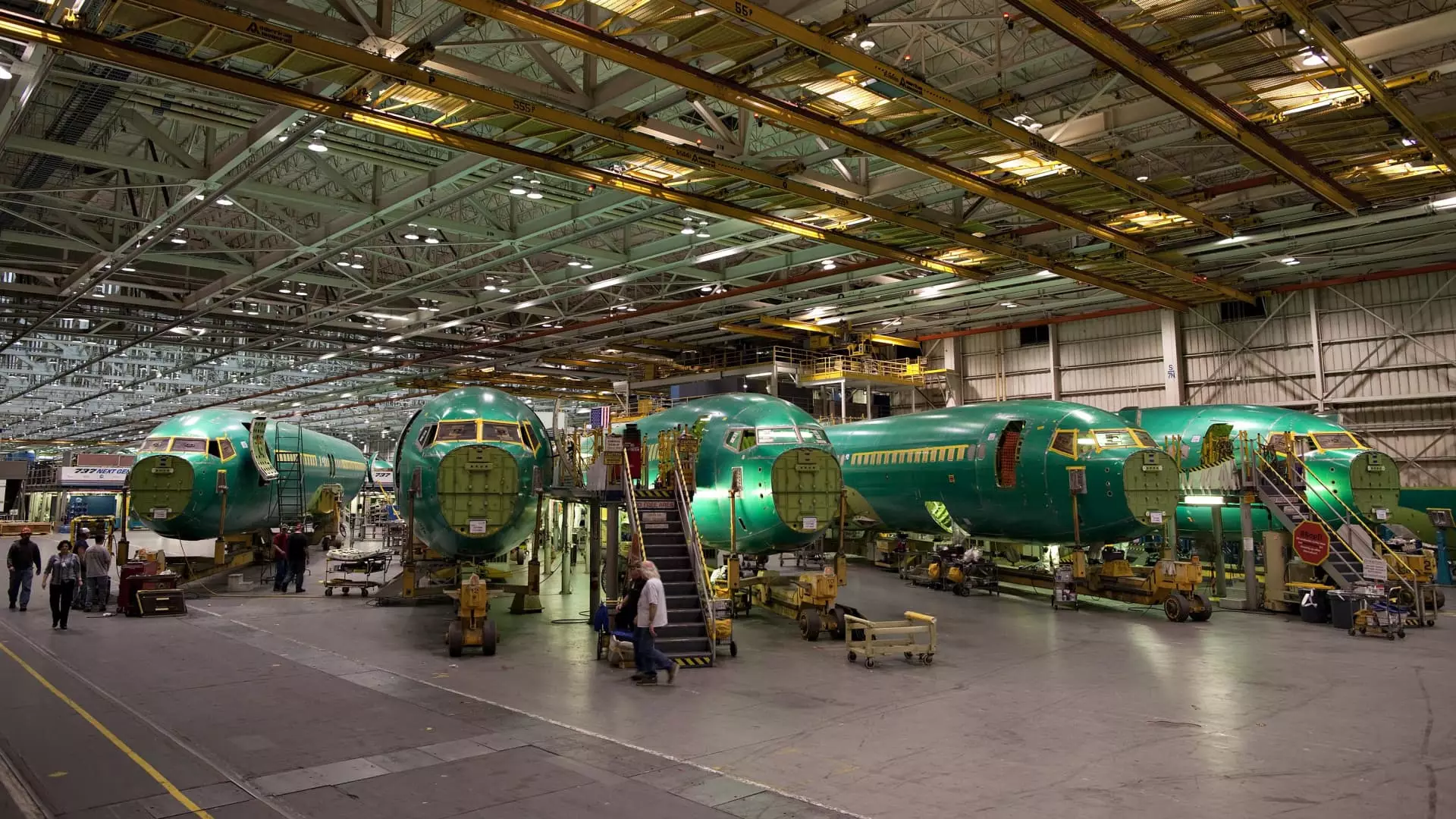Boeing recently made a significant move by announcing its decision to buy back the struggling fuselage maker Spirit AeroSystems in an all-stock deal. This acquisition, valued at $8.3 billion, is expected to bring about improvements in safety and quality control within the company. The planemaker agreed to pay $37.25 a share in Boeing stock for Spirit, giving the aerospace company an equity value of $4.7 billion. This acquisition comes in the wake of a fuselage panel blowing out midair from a Boeing 737 Max 9 on an Alaska Airlines flight, which sparked a crisis for Boeing. Spirit AeroSystems is responsible for manufacturing fuselages for the 737 and other parts, such as sections of Boeing’s 787 Dreamliners.
Boeing’s CEO, Dave Calhoun, highlighted that bringing Spirit in-house will “fully align” the production systems and workforces of both companies. He emphasized the commitment to strengthening quality and ensuring that Boeing maintains its reputation as a leading aerospace company. Calhoun expects the deal to close by mid-2025, pending approval by regulators, Spirit shareholders, and the sale of Spirit’s operators dedicated to Airbus planes. The acquisition also positions Spirit’s CEO, Pat Shanahan, as a potential replacement for Calhoun in the future.
On the other hand, Airbus disclosed that it has reached an agreement with Spirit for compensation amounting to $559 million. This agreement involves acquiring Spirit’s manufacturing lines dedicated to Airbus planes, including crucial operations in locations like Belfast, Northern Ireland, and Wichita, Kansas. The compensation aims to secure the seamless transfer of manufacturing capabilities to Airbus and mitigate potential disruptions in production.
Boeing has been grappling with a series of production problems, including the issue of misdrilled holes and misconnected fuselage panels on its planes. The door-plug blowout incident on the Alaska Airlines flight has significantly impacted Boeing’s delivery schedules and financial performance. The company’s CFO reported a cash burn of approximately $8 billion in the first half of 2024, underscoring the financial strain caused by the crisis. Boeing’s shares have also taken a hit, with a more than 30% decline in value this year.
In response to the quality concerns, Boeing has implemented measures to improve its production processes. The company has adopted a stricter policy of accepting only defect-free fuselages to minimize the need for repairs or additional manufacturing steps. This approach aims to reduce the likelihood of errors and ensure the delivery of high-quality aircraft to customers. However, the Federal Aviation Administration has placed restrictions on Boeing’s production expansion until it is satisfied with the company’s adherence to quality standards.
Boeing’s safety record has come under intense scrutiny, particularly in the aftermath of two deadly crashes involving the Boeing 737 Max. Lawmakers have criticized the company’s safety practices and raised concerns about the lack of improvement despite previous incidents. During a Senate hearing in June, Calhoun faced tough questions about Boeing’s safety culture and the company’s efforts to address underlying issues. The need for stringent safety oversight and continuous improvement remains paramount for Boeing to regain public trust and maintain its position in the aerospace industry.
Boeing’s acquisition of Spirit AeroSystems marks a significant step towards enhancing safety and quality control within the company. The strategic move aligns with Boeing’s commitment to improving production processes and addressing critical issues in aircraft manufacturing. By integrating Spirit’s operations into its own, Boeing aims to streamline production, mitigate risks, and deliver superior products to customers. However, the challenges faced by Boeing underscore the importance of sustained efforts to uphold safety standards and uphold its reputation as a leader in the aerospace sector.



Leave a Reply